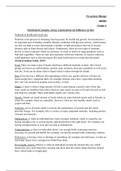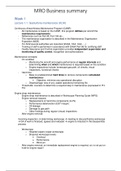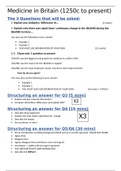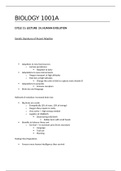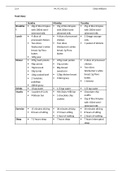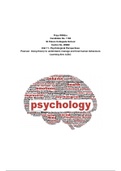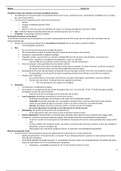Essay
Nutrition assignment 1 P1, P2, M1, P3, M2, D1
- Module
- Unit 19 - Nutritional Health
- Institution
- PEARSON
Nutritional Concepts, energy requirements ad Influences on diet Nutrition in health and social care Similarities and differences in nutritional and energy requirements of teenagers and older adults
[Show more]
